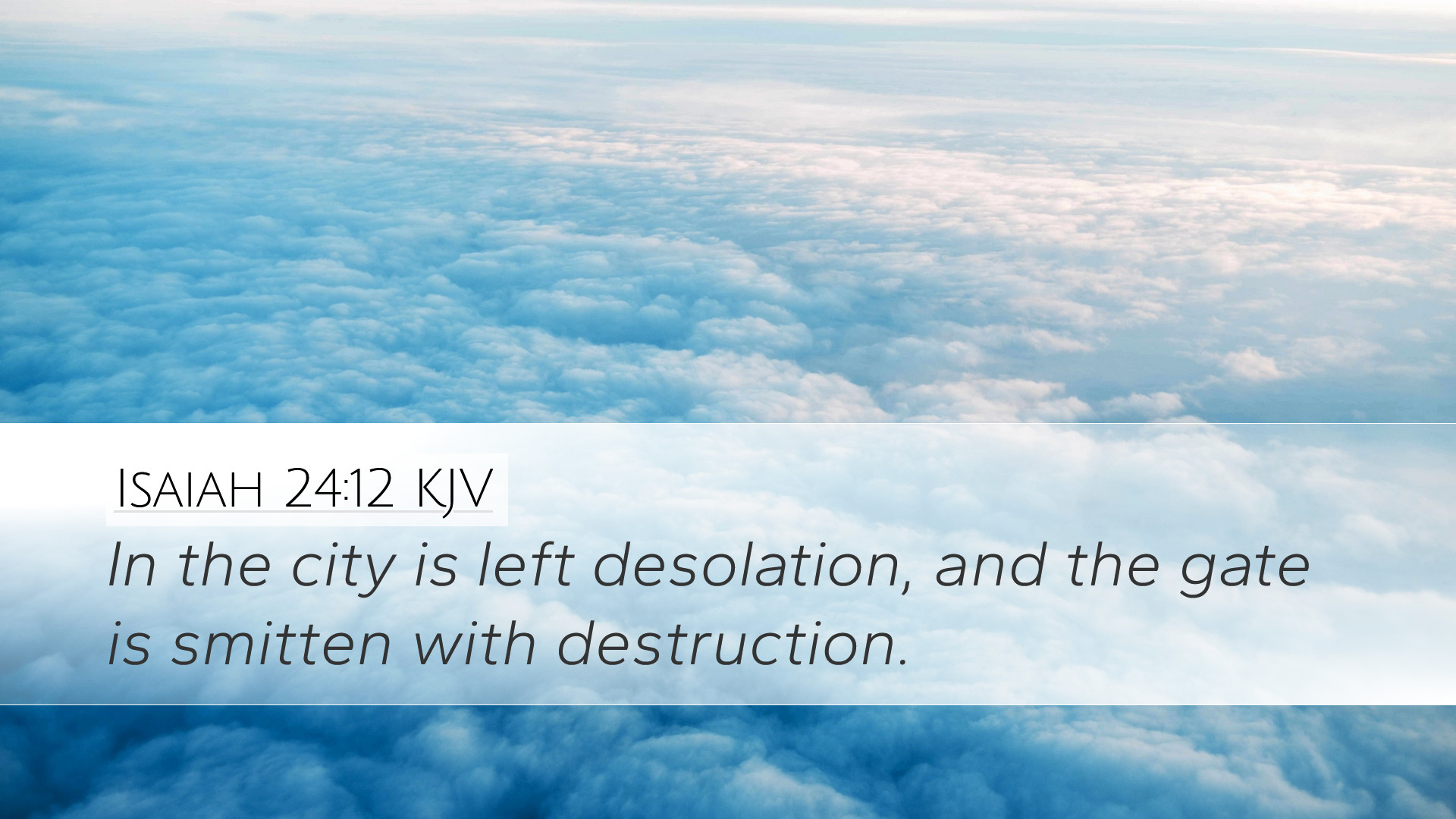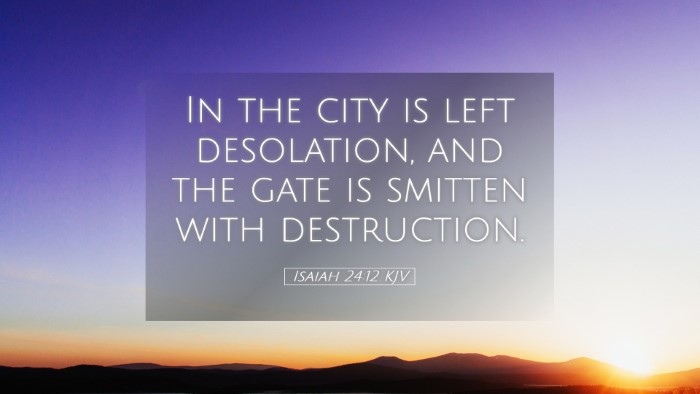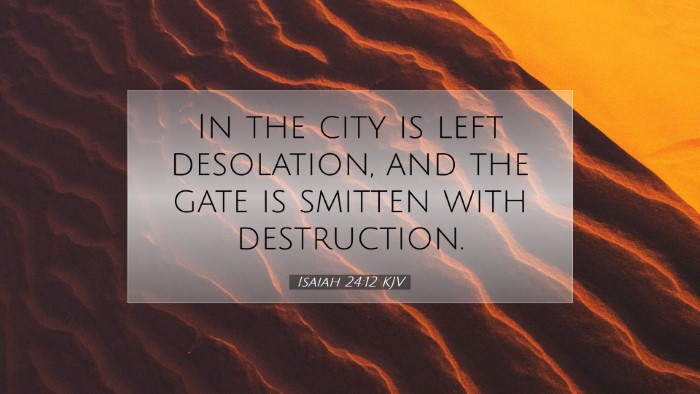Commentary on Isaiah 24:12
Verse Reference: Isaiah 24:12 - "In the city is left desolation, and the gate is smitten with destruction."
The verse under consideration presents a stark depiction of desolation and ruin, emphasizing the severity of God's judgment upon a rebellious world. This passage, embedded in a larger discourse on God's impending judgment, reveals the consequences of sin and unfaithfulness. Below is a synthesis of insights drawn from several public domain commentaries by esteemed theologians.
Contextual Background
Isaiah 24 is a crucial chapter that articulates the themes of judgment and hope amidst devastation. This prophecy reflects upon the future events that will unfold, particularly focusing on the fate of the earth and its inhabitants due to their transgressions.
Matthew Henry notes the universal scope of this judgment, suggesting that the verse implies not just a physical city but serves as a metaphor for spiritual desolation. The effects of godlessness culminate in societal breakdown, where 'the city' symbolizes human order undermined by rebellion against God's sovereignty.
Analysis of the Text
The phrase "In the city is left desolation" conveys a strong sense of loss and emptiness. John Calvin remarks that cities, often symbols of civilization and society, will face the consequences of divine displeasure. This judgement is not localized but serves as a prophetic warning to all cities that do not adhere to God's commandments.
Furthermore, the phrase "the gate is smitten with destruction" speaks to the vulnerability of the foundations of society. Albert Barnes emphasizes that gates are places of judgment and authority; thus, their destruction signifies a complete breakdown of order and governance. When the gates are "smitten," it indicates that not only is the city itself left desolate, but the very systems that uphold order are destroyed.
Theological Implications
This verse reflects a profound theological reality wherein God's righteousness demands accountability. Adam Clarke mentions that the divine judgment is both a present reality for those who harden their hearts against God and a future promise of restoration for the faithful.
- Divine Judgment: Implicit in the desolation is the nature of God's judgment as both just and inevitable. It serves as a reminder of the holiness of God and the consequences of sin.
- Metaphorical Significance: The city represents humanity at large, highlighting a universal principle applicable across generations—God does not tolerate sin indefinitely.
- Hope in Desolation: While judgment is certain, the prophets often include underlying threads of hope, indicating that desolation can lead to repentance and eventual restoration.
Application for Leadership and Ministry
For pastors and church leaders, the implications of this passage urge reflection on the state of society, the church, and personal lives. The desolation brought about by sin serves as a call to repentance. Matthew Henry posits that within desolation, the church is tasked with proclaiming hope and salvation.
Students and theologians are encouraged to dig deeper into the nuances of God’s character as revealed in judgment. The tendency of modern readers may be to shy away from such verses, but understanding them is critical for developing a sound theology of sin and grace.
Practical Considerations
Isaiah 24:12 challenges us to consider the following:
- Awareness of Desolation: Recognizing the signs of spiritual decay within our context is essential. This necessitates unearthing and addressing the idols and sins that plague communities and churches.
- Response to Judgment: As we reflect on the gates smitten with destruction, we should assess our foundations – both individually and collectively – ensuring they align with God’s truth and righteousness.
- Evangelistic Urgency: The certainty of judgment drives the church toward a more fervent evangelistic mission, inviting the lost into the fold of grace amidst a world facing consequences of rebellion.
Conclusion
In conclusion, Isaiah 24:12 serves as both a warning and a call to action. It underscores the reality of sin's consequences while simultaneously offering a compelling narrative of hope for the faithful. As pastors, students, and theologians engage with this profound scripture, they are reminded that alongside judgment, the possibility of repentance and renewal is always present in the heart of God.


